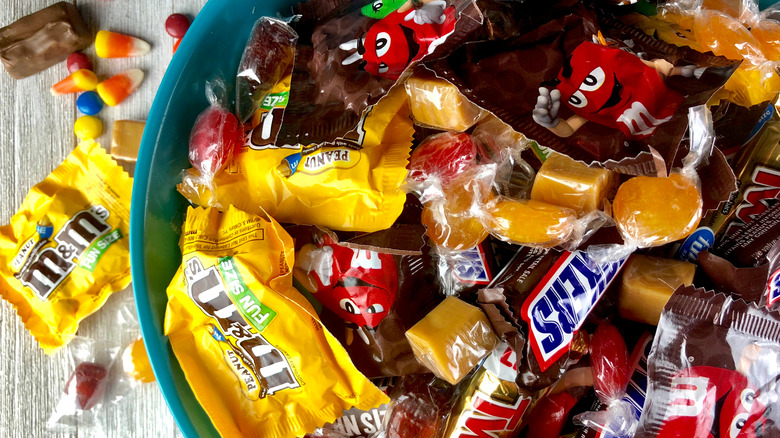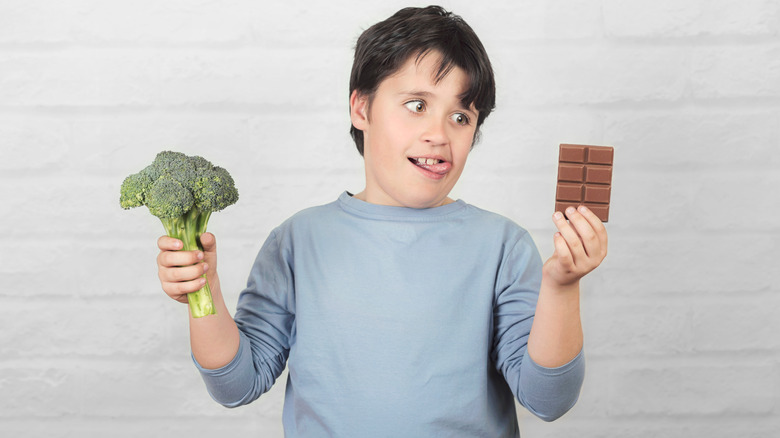You've Been Handling Your Kids' Halloween Candy Haul All Wrong. Here's Why
For some parents these days, the scariest thing isn't "Halloween Kills" — the latest installment in the "Halloween" movie franchise — or the U.S. government's looming debt crisis (via CBS News). It's the prospect of their children consuming all that Halloween candy as soon as they get home from trick-or-treating. The Mercury News stoked fear in the health risks associated with such a massive sugar load, although the San Jose newspaper's target audience was primarily adults. The paper cited a Harvard report that linked excessive added sugar to an increased risk of heart disease. But that study considered people who routinely get upwards of 25% of their daily calories from sugar, and it pointed to sodas and energy drinks as the biggest culprits.
According to The New York Times, parents shouldn't be concerned about a one-day (or even two or three-day) candy free-for-all. In fact, the newspaper said, a parent's concern can do more harm than good.
Nutrition experts tell parents to let children indulge in their Halloween candy haul
The New York Times cited a solid, decades-old study that says setting limits for children around sweet treats typically backfires. Parents shouldn't bargain with their little trick-or-treaters, telling them they can eat their Halloween candy only if they eat all their vegetables at dinner. Studies have shown this approach causes children to like veggies less and crave candy more.
Registered dietician nutritionist Rebecca Scritchfield had some straightforward advice: "Don't touch their candy, don't take control." There are some clear exceptions to this, of course. Do check your child's candy haul for foods they may be allergic to, and for choking or other safety hazards. Also, it only makes sense to require a good teeth-brushing before bedtime. Scritchfield recommends that parents share in the candy indulgence if their kids want to share, but to avoid the shaming self-commentary — statements such as, "I'll have to hit the gym tomorrow." This sends the wrong kind of message.
"Instead of seeing candy as a joyful part of overall healthy eating patterns, you think candy is bad because it might make you fat, and then kids will think, 'I am bad because I like candy,'" Scritchfield said. "Nobody wins."
The Halloween buzz, alas, must go away eventually. A couple of days after Halloween, Scritchfield said, it's appropriate to limit any leftover candy to meal and snack times only.

